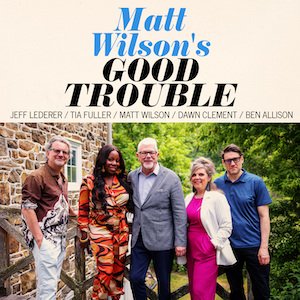Label: ECM Records, 2024
Personnel - Tomasz Stańko: trumpet; Marcin Wasilewski: piano; Slawomir Kurkiewicz: bass; Michal Miskiewicz: drums.
The late trumpeter Tomasz Stanko was a one-of-a-kind player with a gift for drawing out the beauty of melody within a sophisticated musical universe of common sense and emotional lyricism. For more than four decades, he spawned a slew of his own projects. September Night, a posthumously released album recorded live at Muffathalle, Munich, in 2004, finds him at the peak of his capacities alongside his emblematic Polish quartet.
The album opens with “Hermento’s Mood”, where Stanko’s consistently impressive melodicism shines over Slawomir Kurkiewicz’s dancing bass pedal, Michal Miskiewicz’s gently propulsive rhythm, and Marcin Wasilewski’s gorgeous harmonizations on piano. “Song For Sarah”, which opened the Suspended Night album (ECM, 2004), follows as a rubato ballad oozing sentiment through every pore.
“Euforila”, an older piece first recorded in 1986, is subtly funkified and bears a dynamic Latin-infused bass groove. Tailored with unerring moments of synchronism, the piece also showcases the improvisatory freedom enjoyed by Wasilewski and Stanko. Both musicians exhibit conversational proficiency in their refined musical languages without ever sacrificing clarity. While “Elegant Piece” advances calmly, immersed in this sheer beauty, the collectively improvised “Kaetano” evolves into a bossa-nova groove flagged by efficient brushwork.
One of Stanko’s most memorable pieces is “Celina”, from his 1995 album Matko Joanna (ECM, 1995). Revived here with a charming trumpet intro that interlaces relatable angular and dramatically curved expression, the piece seamlessly leads into the melodious yet groovy theme. The album concludes with “Theatrical”, a somewhat dusky, flowing piece that exudes a warm sense of comfort.
In possession of an astonishing rapport, Stanko and his quartet merge as one. September Night is a lush of an album, whose music continues to resonate and inspire.
Favorite Tracks:
01 - Hermento’s Mood ► 03 - Euforila ► 04 - Elegant Piece ► 06 - Celina








































